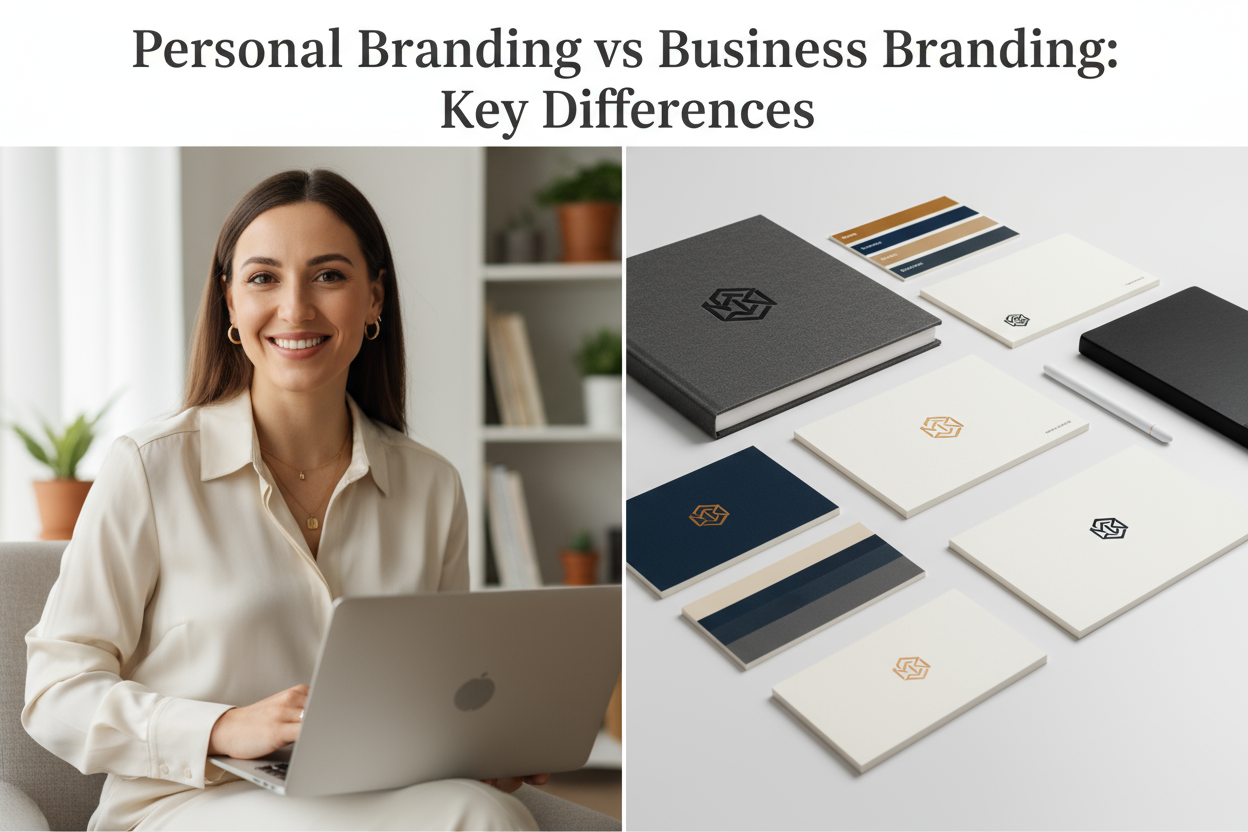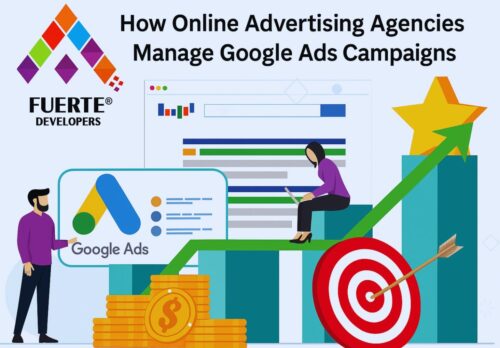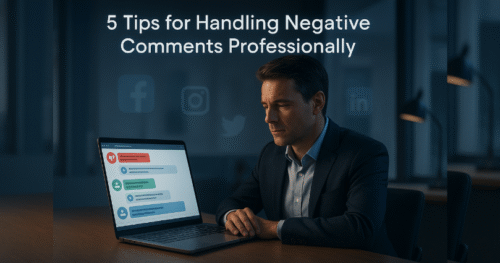In today’s competitive marketplace, branding has become more than just a marketing term—it’s the foundation of how customers perceive value, trust, and identity. Whether you’re an entrepreneur, influencer, or a growing company, understanding the difference between personal branding and business branding is essential for long-term success. Both strategies aim to build reputation and recognition, but they differ in purpose, execution, and audience engagement.
What Is Personal Branding?
Personal branding is the art of marketing yourself—your values, expertise, and personality—to create a memorable impression. It’s how you establish authority and credibility as an individual rather than as a company. In essence, your personal brand is your professional reputation.
A strong personal brand highlights:
- Your unique strengths and skills
- Your values and beliefs
- Your voice and personality
- The emotional connection you build with your audience
Why Personal Branding Matters
In a world where people trust people more than corporations, personal branding helps you:
- Build authentic connections with followers and clients
- Position yourself as an industry thought leader
- Create trust and relatability
- Unlock opportunities such as speaking engagements, partnerships, and media features
Example: Elon Musk’s personal brand of innovation and boldness directly impacts the public perception of Tesla, SpaceX, and other ventures. His personal visibility amplifies brand recognition for his companies.
What Is Business Branding?
Business branding, on the other hand, focuses on establishing a unique identity for a company or organization. It’s how a business communicates its purpose, values, and offerings to its customers.
A company’s brand encompasses:
- Logo, design, and visuals
- Tone of voice and communication style
- Mission, vision, and core values
- Customer experience and brand promise
Why Business Branding Matters
Strong business branding builds:
- Recognition and trust among consumers
- Consistency across marketing channels
- Customer loyalty and advocacy
- Market differentiation in competitive industries
Example: Apple’s branding is synonymous with innovation, simplicity, and luxury. The consistent design, minimalist packaging, and customer experience reflect its strong business brand identity.
Key Differences Between Personal and Business Branding
While both aim to establish identity and trust, their strategies, goals, and outcomes differ significantly. Let’s break down the major distinctions:
Aspect | Personal Branding | Business Branding |
Focus | Centered on the individual | Centered on the company |
Voice | Personal, authentic, and emotional | Professional, structured, and strategic |
Goal | Build authority and influence | Build market trust and profitability |
Scalability | Limited to personal capacity | Easily scalable and transferable |
Audience Connection | Emotional and personality-driven | Experience and value-driven |
Longevity | Evolves with the person | Can outlast founders or leadership changes |
In short, personal branding builds people, while business branding builds companies.
When to Focus on Personal Branding
You should prioritize personal branding if:
- You are a coach, consultant, or influencer
- Your expertise is the core of your business
- You want to be seen as a thought leader
- Your reputation drives your business success
For example, personal brands like Gary Vaynerchuk and Oprah Winfrey thrive because their authenticity and expertise attract loyal audiences who connect with their personalities.
When to Focus on Business Branding
Focus on business branding if:
- You plan to scale your company or bring in multiple team members
- You want your business to operate independently of your personal image
- You are targeting a wider or more diverse audience
- You’re building a brand that can be sold or franchised in the future
For example, companies like Nike and Coca-Cola have strong brand identities that exist beyond any single person. Their branding focuses on the customer experience and product values, not individual personalities.
How Personal Branding and Business Branding Work Together
In today’s digital-first world, combining both strategies can create a powerful synergy. Here’s how:
- Use Personal Branding to Humanize Your Business:
People connect with people, not logos. By showing the faces and stories behind your brand, you can build deeper trust. - Use Business Branding to Scale Beyond Yourself:
A company brand ensures that your business remains sustainable even if you step back from public view. - Leverage Social Media Strategically:
Build personal connections on platforms like LinkedIn or Instagram while maintaining a consistent company presence on websites and corporate channels. - Blend Voices Thoughtfully:
Your personal voice can add emotion to your company’s professional tone, striking a balance that resonates with both audiences and clients.
Challenges of Personal Branding
While personal branding offers great visibility, it also comes with challenges:
- Limited scalability: Growth depends on your availability and time.
- High personal exposure: Mistakes or controversies can directly affect your image.
- Pressure to stay consistent: You must continually show up and engage authentically.
Successful personal brands manage this by diversifying platforms and maintaining clear boundaries between personal and professional lives.
Challenges of Business Branding
Business branding also has its hurdles:
- Building trust takes time: Consumers often prefer human connection.
- Requires consistent execution: From marketing to customer service, every touchpoint must align with brand values.
- Can feel impersonal: Without a human element, brands may struggle to create emotional resonance.
However, businesses can overcome these challenges by integrating authentic storytelling and highlighting their team’s personalities.
Which Branding Strategy Is Right for You?
Choosing between personal and business branding depends on your goals, scale, and vision.
Ask yourself:
- Do you want to be the face of your brand or build something bigger than yourself?
- Will your business thrive on personal trust or corporate credibility?
- Do you plan to sell or scale your business in the future?
Many successful entrepreneurs start with a personal brand to establish trust and later transition into a business brand as their company grows.
Final Thoughts
In the digital age, both personal branding and business branding are essential tools for building visibility and trust. While personal branding focuses on authenticity and human connection, business branding emphasizes consistency, scalability, and professionalism.
The most effective strategy often lies in balancing both—using your personal voice to humanize your business and your business brand to scale your influence beyond yourself.







